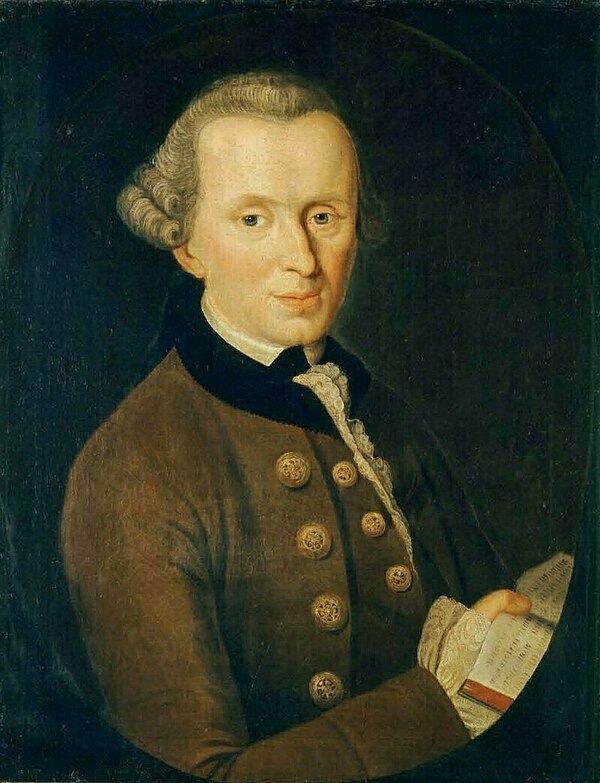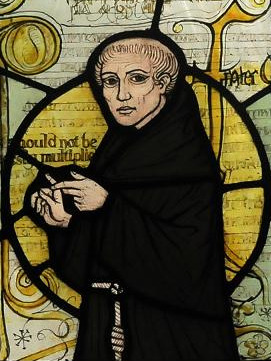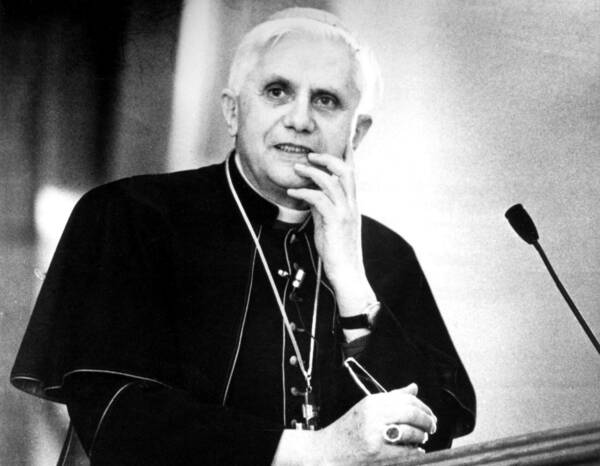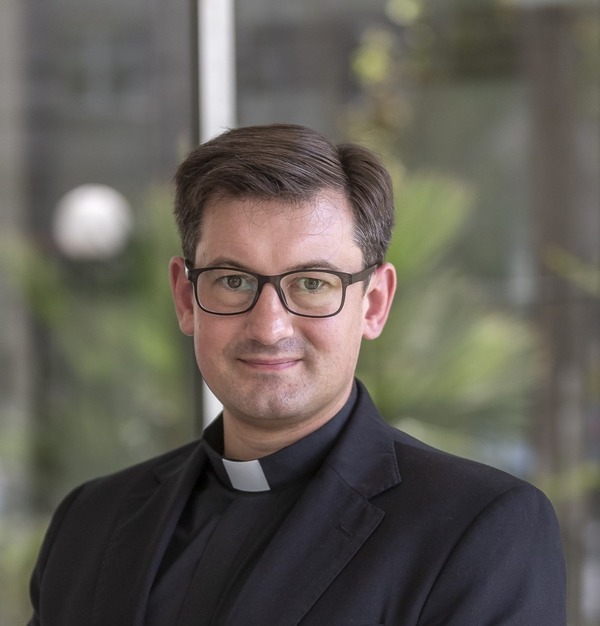“[Nature] for many today is almost incomprehensible due to a concept of nature that is no longer metaphysical, but only empirical.” (Benedict XVI. To the participants in the International Congress on Natural Moral Law, 2007)
Part I presented the separation of reason from religion concerning legislation. The question now is what Ratzinger proposes specifically with respect to natural law.
Undermining the metaphysical understanding of nature

The concept of ‘nature’ as a metaphysical concept is problematic and presents difficulties to understand in today’s day and age. I propose that several philosophical currents that have led to this. Perhaps two significant factors could be designed as breaking points: Kant’s affirmation that we can only know the phenomenon and Darwin’s theory of evolution. Existentialism and nominalism also have a role to play in the crisis of nature that we face today.
The first factor to undermine the metaphysical view of nature can be attributed to Kant. Kant’s theory of knowledge, whereby we cannot know the thing (noumenon) per se but only as it appears to us (the phenomenon) having been formatted by the categories, affirmed that impossibility of knowing the nature of the thing itself. Thus, his moral theory was based on a purely normative deduction of what would be ‘rational,’ which could be a universal norm. Kant’s categorical imperative sought to empty morality from a sense of reward or punishment (acting according to the hypothetical imperative) and base human morality on the concepts of right and wrong. The person took the role of a potential legislator who must decide what, devoid of self-interest, should be done in a universal manner. Nature had no part to play in determining what is right or wrong.
The second factor was primarily scientific but had philosophical ramifications. Darwin’s Theory of Evolution proposed a radical new view of the human person. The person was principally an animal – yes, more evolved but still an animal – with a resulting crisis as to what was man’s place in the universe. Previously, man was seen to be the pinnacle of Creation. Now, he was an advanced animal. Man’s nature was not a specific gift but a material development. As Ratzinger says, “The idea of the natural law presupposed a concept of nature in which nature and reason overlap, since nature itself is rational. With the victory of the theory of evolution, this view of nature has capsized: nowadays, we think that nature as such is not rational, even if there is rational behavior in nature.”
These views backed up the empiricist model, whereby the subject is known only by his or her actions. Substance and nature are senseless words, unknowable in themselves. Thus, as Stephen Pope says in “Reason and Natural Law”, “The destructive implications of this view for the ‘moral law’ are clear. Nature is purposeless and amoral.” Linked to this, the existentialists, who rejected Hegelian idealism which was dominant at that time and proposed that actions and not ideas define us. This is summed up in Sartre’s claim that “existence precedes essence”.

This is a nominalist view. Nominalism is usually ascribed to Ockham and others who held that the essence of something depended on the divine act of naming it. Indirectly this view put into crisis “nature.” For if a thing is such and such, purely by an act of will, then with any other act of will, its nature could change. The major change between medieval nominalism and its modern-day current in existentialism is that the divine is now each person. The person is his or her own creator by the “will to power”.
But this leads to a crisis. As Alasdair Macintyre writes in After Virtue, “The self is now thought of as lacking any necessary social identity… the self is now thought of as criterionless, because the kind of telos in terms of which it once judged and acted is no longer thought to be credible.”
Ratzinger’s solution: metaphysics through theology
Ratzinger recognizes the difficulty that using natural law poses. While it may be surprising, he initially did not favor using natural law. This can be seen in his 1964 publication, “Naturrecht, Evangelium und Ideologie in der katholischen Soziallehre” His turn towards natural law can be clearly seen was Prefect of the Congregation for the Doctrine of the Faith, but this change came from a theological, not philosophical, reflection on the Logos.
Rationality can be discovered in the created as it is the fingerprint of the Logos, its Creator. As he states in an article in Communio, “The Renewal of Moral Theology,” Christ, the Logos incarnate, who is the fullness of creative Reason, “speaks to us and opens our eyes to see anew, even in the darkness of a post-metaphysical era, the presence of a creative truth that lies at the foundation of being and that, with its language, also speaks within being.” Therefore, Ratzinger rejects a Grotian view of an independent natural law that needs no foundation in the Divine Creator. To understand natural law for Ratzinger requires faith and revelation. In his discourse to the Bundestag, he states, “[T]here is also an ecology of man. Man too has a nature that he must respect and that he cannot manipulate at will. Man is not merely self-creating freedom. Man does not create himself.”
This demonstrates a theological perspective. Creation is indeed an expression of the Creator Spiritus where there are natural physical and moral laws. As Ratzinger says in A Turning Point for Europe, “Creation itself teaches us how we can be human in the right way. The Christian faith, which helps us to recognize Creation as Creation, does not paralyze reason; it gives to practical reason the life-sphere in which it can unfold. [The Church’s morality] is the defense of man against the attempt to abolish him.” Thus, natural law, a moral law, is the listening to Creation.
Today, many speak of how humanity must listen to nature and that many elements of climate change are nature ‘speaking’ or consequences of misuse of nature. Ratzinger admits that there is a true ecological crisis. But he links this in a 2007 discourse at World Youth Day with the crisis of morality. For just as physical nature is scarred by human greed and misuse, so too is mankind scarred. As Ratzinger puts it in Caritas in Veritate, “[t]he book of nature is one and indivisible: it takes in not only the environment but also life, sexuality, marriage, the family, social relations: in a word, integral human development.”

This deafness can be linked back to both empiricism and existentialism. In a 2007 discourse to the International Theological Commission, Ratzinger criticizes the over-dependence on the scientific method, which, while allowing one to know the rational structure of physical nature, is unable to perceive the source of this structure, which he calls ‘creative Reason’. In this same line, he speaks of the investigation of physical nature, which becomes “incapable of seeing the ethical message contained in being, a message that tradition calls lex naturalis, natural moral law.” Against the vision of the existentialists, Ratzinger says in his 2011 speech to the Bundestag that it is only when the person respects his nature and accepts his identity as given, not arbitrarily constructed – for he does not create himself –, that “true freedom is fulfilled.”
Thus, human ecology, or listening to the voice of the creative Reason, Logos discovered within the created, means respecting human metaphysical nature. Not respecting it leads to the crisis that humanity finds itself in today. Instead of being repressive, natural law defends mankind against the dictatorships of relativism that do not listen to nature and the ideologies that impose totalitarian ideas upon the person instead of respecting the person’s nature. Human ecology is about accepting that we are creatures – not just animals as Darwinian evolution might claim –, that our identity is a given, not entirely self-produced – as the existentialists would say –and that we must respect and live these truths to be fully human. We must respect our nature and live according to it.
Suggested further reading
James Cleary. (2023). “Ecología humana, el concepto de ley natural en Benedicto XVI,” Revista Suroeste, https://revistasuroeste.cl/wp-content/uploads/2023/06/revista_suroeste_edicion_especial_benedicto_xvi_joseph_ratzinger.pdf.
Joseph Ratzinger. (2005), “The Renewal of Moral Theology: Perspectives of Vatican II and Veritatis Splendor,” Communio 32, no. 2
Benedict XVI. (2007). To the participants in the International Congress on Natural Moral Law sponsored by the Pontifical Lateran University. Vatican. https://www.vatican.va/content/benedict-xvi/en/speeches/2007/february/documents/hf_ben-xvi_spe_20070212_pul.html
Benedict XVI. (2008) Apostolic Journey to Sydney: Welcoming celebration by the young people at Barangaroo. Vatican. https://www.vatican.va/content/benedict-xvi/en/speeches/2008/july/documents/hf_ben-xvi_spe_20080717_barangaroo.html.
About the author

James Cleary, L.C., a priest of the Legionaries of Christ, is a Ph.D. candidate in humanities at the Francisco de Vitoria University (Spain) and is a professor of philosophy in the Finis Terrae University (Chile). He received a M.A. in philosophy and graduated with a degree in theology from the Pontifical Athenaeum Regina Apostolorum (Italy). His dissertation project focuses on political philosophy in John Rawls and Joseph Ratzinger regarding legislation on transgender issues.